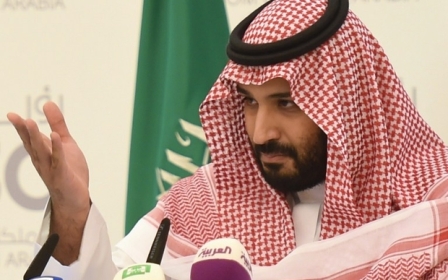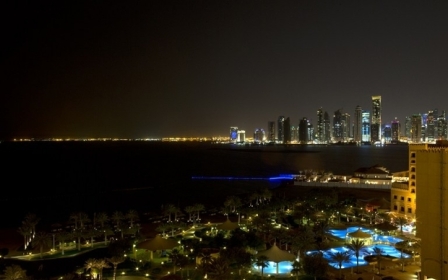Gulf states exempt Qataris married to nationals from expulsion

Saudi Arabia, the UAE and Bahrain will not deport Qataris who are married to their nationals, reports said on Sunday, a week after the Gulf states severed diplomatic ties with Doha.
The Gulf countries said that Qataris married to their own citizens would be exempt from an order that called on its nationals to leave Qatar within 14 days and barring Qataris from their counties.
In the worst Gulf Arab crisis for years, the UAE, along with Saudi Arabia and Bahrain, cut diplomatic as well as travel and trade ties with Qatar, accusing their fellow Gulf state of supporting Iran and funding Islamist groups. Doha denies the charges.
Before the decision Gulf Arab citizens could easily travel, reside and work across the six member states of the Gulf Cooperation Council (GCC).
The restrictions have left thousands of Qataris cut off from relatives in a region where cross-border marriages are common and Gulf rulers refer to each other as "brothers".
"Qataris married to Emiratis will not be deported," The National wrote on Monday, without giving a source for the information. "UAE airports and borders have been ordered to allow any Qatari citizens who are immediate relatives of Emiratis to pass through," it added.
The move appears to be part of recent efforts to lessen the human toll of the rift. On Sunday authorities in the UAE, Saudi Arabia and Bahrain said they were setting up hotlines to help families with Qatari members, without elaborating.
Saudi state news agency SPA reported late on Sunday that King Salman has ordered authorities to "take into consideration humanitarian situations of Saudi-Qatari joint families," appearing to clarify the previous announcements. Bahrain issued a similar statement on its state news agency.
In a statement on Friday, US Secretary of State Rex Tillerson told Gulf states to ease their measures against Qatar which he said were forcing the separation of families and causing children to be pulled out of school.
"Our expectation is that these countries will immediately take steps to de-escalate the situation and put forth a good faith effort to resolve their grievances they have with each other," he said.
Qatar said on Saturday it would not expel citizens of the countries that had cut ties with it.
Pilgrims exempt
Meanwhile, Saudi Arabia also said on Sunday that Qataris who wanted to perform Islamic pilgrimages were also exempt from the measures and would be allowed into the kingdom as normal.
"The pilgrims from Qatar are in the hearts of their Saudi brethren from when they enter the kingdom until their departure," SPA said, quoting the official body in charge of Mecca and Medina, Islam's two holiest sites.
The kingdom denied that it had barred Qataris from entering the Grand Mosque in Mecca, following reports of Qataris being harassed in Mecca and turned back from entering the holy mosque.
“Since last Sunday, the kingdom received 1,633 Qatari pilgrims who have performed their Umrah,” the SPA said.
Qatar's National Human Rights Commission (NHRC) received complaints from Qatari citizens that pilgrims from Qatar were barred from entering the Masjid al-Haram in Mecca, the paper said on Saturday.
Ali bin Smaikh al-Marri, the NHRC head, called the incident a flagrant violation of the right to practice religious rights as permitted by human rights conventions, the paper said.
The NHRC denounced the incident, considering the step a violation of the right to perform religious rituals guaranteed by human rights conventions, Al Sharq added.
The claims came a few days after the UAE and Bahrain criminalised "sympathy" for Qatar on social media.
The UAE said offenders would be punished with a jail term of up to 15 years and a $136,000 fine. Bahrain declared it punishable by imprisonment of up to five years.
Since the diplomatic dispute erupted, slogans against and in support of Qatar have been among the top topics discussed on Twitter in Arabic, which is a hugely popular medium of expression in the Arab world, particularly in Saudi Arabia.
New MEE newsletter: Jerusalem Dispatch
Sign up to get the latest insights and analysis on Israel-Palestine, alongside Turkey Unpacked and other MEE newsletters
Middle East Eye delivers independent and unrivalled coverage and analysis of the Middle East, North Africa and beyond. To learn more about republishing this content and the associated fees, please fill out this form. More about MEE can be found here.




